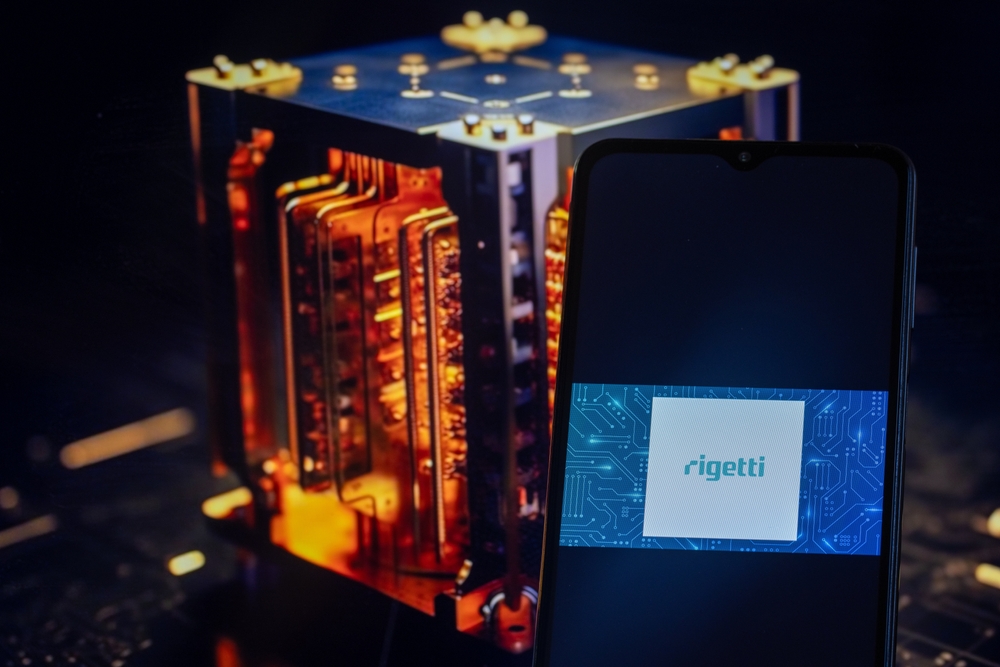
Rigetti Computing’s (RGTI) stock jumped on Wednesday after the full-stack quantum computing startup announced that it had built the industry’s largest modular quantum computer by linking together four 9-qubit chips to create a 36-qubit system.
The company also said it reached a mid-year performance milestone, with the qubits achieving 99.5% accuracy when working together.
This latest performance created a 2x reduction in median two-qubit gate error rate from Rigetti’s previous best results on its 84-qubit single chip Ankaa-3 system.
Rigetti said in a press release that it plans to launch its 36-qubit system on August 15, and remains on track to release its 100+ qubit chiplet-based system at 99.5% median two-qubit gate fidelity before the end of 2025.
Shares gained as much as 30.5% in midday trading.
“By leveraging well-known techniques from the semiconductor industry, we’ve developed proprietary technology that we believe is critical to enable scaling to higher qubit count systems,” Rigetti CEO Dr. Subodh Kulkarni said in a statement.
“We look forward to sharing more updates when we release our operating results for the second quarter of 2025.”
It has been an interesting year for the quantum computing sector, which – unlike the AI industry – faces the challenge of trying to convince Wall Street that its technology is not just experimental, but also on the cusp of being commercial.
Earlier this year, Nvidia CEO Jensen Huang sent quantum stocks tumbling when he suggested practical quantum machines were still 15 to 30 years away.
Meta CEO Mark Zuckerberg also downplayed quantum’s near-term prospects in a January podcast with Joe Rogan, calling major breakthroughs “a decade off at best.”
However, Huang changed his tune last month while speaking at Nvidia GTC Paris, describing the industry as being at an “inflection point” and that quantum systems are “within reach” of solving real-world problems “in the coming years.”
Meanwhile, IBM (IBM) declared in June that it has the “most viable path” to building the world’s first large-scale ,fault-tolerant quantum computer and that it plans to deliver by 2029.
‘The biggest revolution for humanity since discovering fire’
The relatively minimal amount of commercialization for quantum computing companies at the moment will likely mean that their stocks will remain volatile, especially in the near term.
However, Bank of America analysts wrote in a note on Wednesday that it could approach a $2 trillion application market by 2035, saying that quantum computing “could be the biggest revolution for humanity since discovering fire.”
“A human would have to perform one sum every second for c.50 quintillion years to equal what a quantum computer can do in a single second,” BofA’s analysts wrote.
BofA noted that next-generation chips and improved qubit fidelity – such as what Rigetti has just delivered – have been significant developments for the quantum industry.
The analysts put the race for quantum supremacy in the same context as some have done with the race for AI dominance, noting that “whoever wins the ‘quantum race’ will gain an unprecedented geopolitical, technological and economic advantage.”
BofA said that the blend of quantum computing and generative AI could create what it calls "Artificial Super Intelligence.”
Your email address will not be published. Required fields are markedmarked